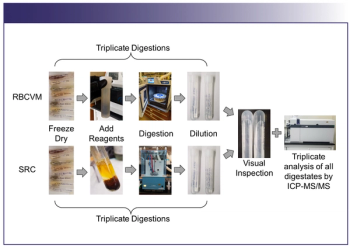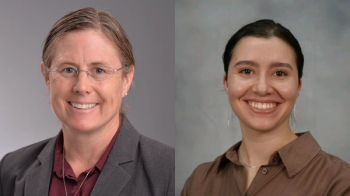
Tom Metz Discusses The State of Forensic Science and His Research
In this full-length interview, Thomas (Tom) Metz, a Laboratory Fellow and Chief Science Officer of the Biological Sciences Division at Pacific Northwest National Laboratory, discusses his research and his thoughts from the American Academy of Forensic Sciences (AAFS) Conference.
During the course of the American Academy of Forensic Sciences (AAFS) Conference, which took place from February 17th–22nd, 2025, several important talks took place about the state of the forensic science industry (1). With talks organized by specific topic areas, conference attendees had the chance to attend sessions that directly correlate to their topic of research or what they are interested in. Most of these talks highlighted how forensic science technology is leading to discoveries and changing the way investigations are conducted (1).
One topic area that featured numerous important talks was “Criminalistics.” In this topic area, Metz discussed reference-free identification of fentanyl analogs. Metz’s research focuses on high-throughput metabolomics and lipidomics, integrating proteomics to study chronic and infectious diseases, leading to over 200 publications (2). His recent work has investigated multi-dimensional mass spectrometry (MS) and computational prediction for reference-free compound identification. He previously led metabolomics and proteomics initiatives for major NIH-funded programs (2). From 2021–2023, he served as President of the Metabolomics Association of North America (2). Currently, he leads the PNNL m/q Initiative and co-leads the ChemBio Analytical Sciences Hub of NEXUS for Exposome Research Coordination (2). His expertise advances analytical sciences, enhancing molecular identification and biomarker discovery for disease and environmental studies.
Our full-length interview with Metz covers a wide variety of topics. In our conversation, we discuss his observations on the ground at the American Academy of Forensic Sciences (AAFS) conference. We also dive into his talk, “Reference-Free Identification of Fentanyl Analogs” which he discussed at AAFS. Other topics that were discussed were Metz’s work in using, developing, and applying high throughput metabolomics and lipidomics methods, in conjunction with proteomics, in studies of chronic and infectious diseases, the biggest challenges forensic scientists face, and some of the developments in technology that are impacting this space.
To view more of our coverage of the AAFS Conference, click
References
- Wetzel, W. The State of Forensic Science: Previewing an Upcoming AAFS Video Series. Spectroscopy. Available at:
https://www.spectroscopyonline.com/view/the-state-of-forensic-science-previewing-an-upcoming-aafs-video-series (accessed 2025-03-24). - Pacific Northwest National Laboratory, Thomas O. Metz. PNNL.gov. Available at:
https://www.pnnl.gov/people/thomas-o-metz (accessed 2025-03-24).
Newsletter
Get essential updates on the latest spectroscopy technologies, regulatory standards, and best practices—subscribe today to Spectroscopy.




